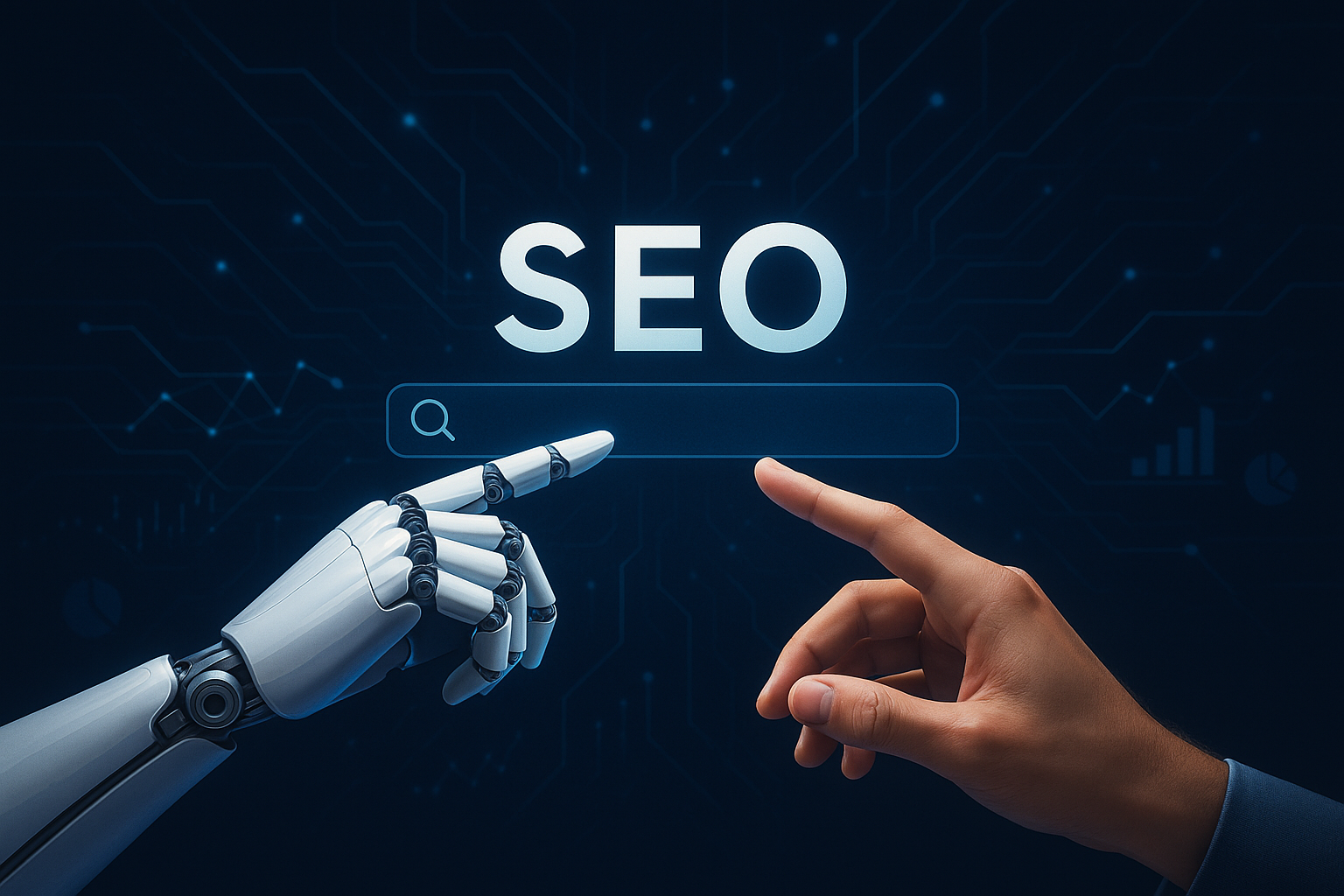 Introduction: The Machines Are Now in A Search Game
Introduction: The Machines Are Now in A Search Game
For nearly two decades, Google defined how the world searched — and how marketers wrote.
But in 2025, that relationship is being rewritten.
The era of keywords, backlinks, and blue links is fading, replaced by something far more intelligent: AI-driven search.
Where we once optimized for algorithms, we now communicate with them.
Tools like ChatGPT, Gemini, and Claude have transformed discovery from a process of matching phrases to one of understanding meaning.
This evolution marks more than a technical shift — it’s a philosophical one.
The rulebook of SEO isn’t just changing; it’s being completely rewritten.
 From Keywords to Conversations
From Keywords to Conversations
In the past, search engines were literalists.
If a user typed “best SEO tools 2020,” the algorithm hunted for those exact words.
Today, AI interprets the intent behind a query, not just the words that frame it.
Type “how do I get my content seen faster?” — and AI now knows it’s a question about visibility, discoverability, and strategy.
“Search is moving from syntax to semantics,” says Dr. R. J. Pathak, a senior AI linguist at the Indian Institute of Technology. “The future of SEO lies in understanding why people search, not just what they type.”
This is the rise of semantic SEO, where context is the new keyword.
Google’s Search Generative Experience (SGE) now synthesizes multiple pages into one AI-generated summary.
For marketers, relevance now outranks rankings.
 The Rise of AI-Powered SEO Tools
The Rise of AI-Powered SEO Tools
The SEO toolkit of 2025 looks nothing like it did five years ago.
Platforms like ChatGPT, Gemini, SurferSEO, and MarketMuse now analyze millions of pages, map semantic intent, and generate optimization strategies — all in minutes.
Leading tools and their core strengths:
-
ChatGPT & Gemini → Brainstorm topics, generate meta tags, FAQs.
-
SurferSEO → Real-time on-page intent scoring.
-
MarketMuse → Identify topical gaps and semantic coverage.
According to HubSpot’s 2025 SEO Report,
“76% of professionals now use AI tools to plan and optimize content — up from 34% in 2023.”
This transformation is not about automation replacing humans, but machines amplifying marketers.
 How AI Writes — and Thinks — About Content
How AI Writes — and Thinks — About Content
AI now co-authors with us.
It drafts outlines, tests tone, and suggests keywords that align with both user intent and algorithmic preference.
But human nuance still matters.
AI may build the structure, yet the empathy, humor, and context still come from us.
“AI doesn’t replace creativity,” says SEO strategist Kavita Bhatia. “It scales it.”
At AdCover, we’ve seen this balance firsthand — campaigns that blend AI efficiency with human storytelling consistently outperform automated-only strategies.
 Personalization and Predictive Search
Personalization and Predictive Search
Search is no longer static.
AI personalizes every result based on location, search history, and behavioral patterns — even device or time of day.
Marketers must evolve from creating evergreen pages to maintaining ever-adaptive pages — ones that learn from user signals and evolve over time.
This is the beginning of predictive SEO — optimizing content before the trend peaks.
 Beyond Google: The Era of AEO and GEO
Beyond Google: The Era of AEO and GEO
The next battleground isn’t on page one of Google.
It’s inside AI-driven ecosystems — the assistants, search companions, and chat interfaces that summarize the web for users.
-
AEO (Answer Engine Optimization) means crafting content that AI can quote directly.
-
GEO (Generative Engine Optimization) means ensuring your brand appears in generative answers produced by AI models.
“We used to write for Google,” notes digital analyst Martin Ghosh. “Now, we write for AI that writes for Google.”
Here, structured data, credibility, and clarity become the keys to visibility.
 Conclusion: A New SEO Mindset
Conclusion: A New SEO Mindset
In 2025, SEO is no longer a technical checklist — it’s a strategic conversation with machines.
The winners will be those who combine human creativity with AI intelligence to communicate clearly across both audiences.
AI isn’t here to erase SEO.
It’s here to evolve it — from search engine optimization to semantic experience orchestration.
The future of visibility belongs to those who learn to speak in the language of AI — fluently, naturally, and ethically.

